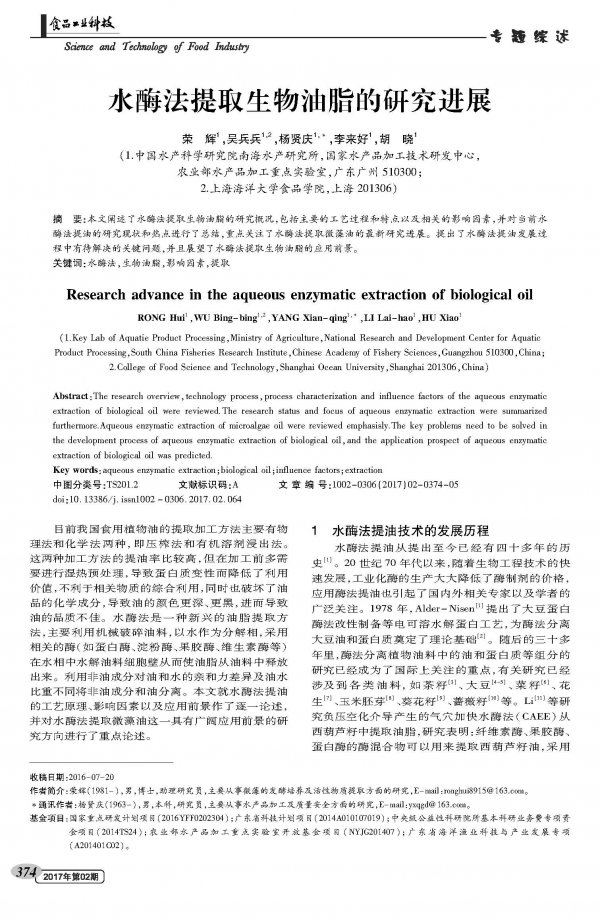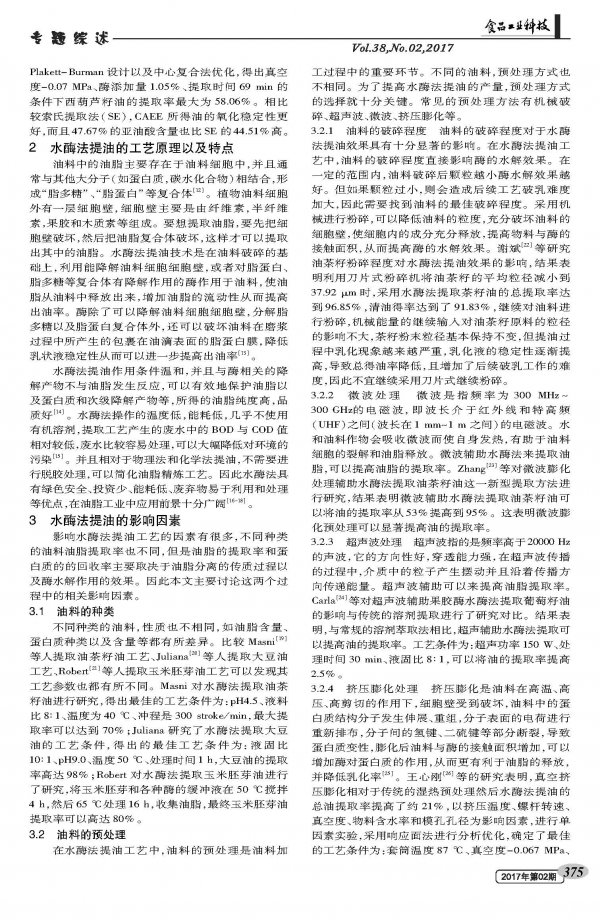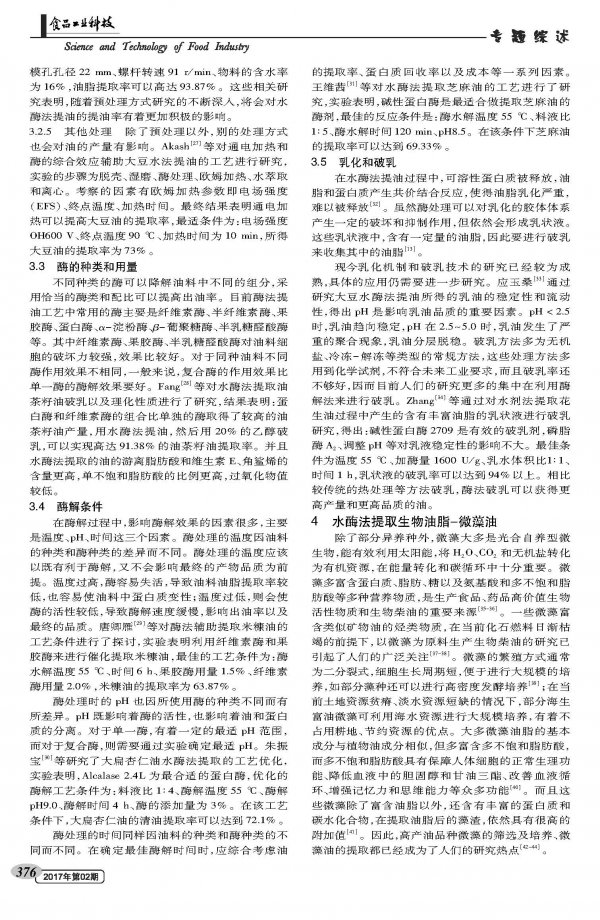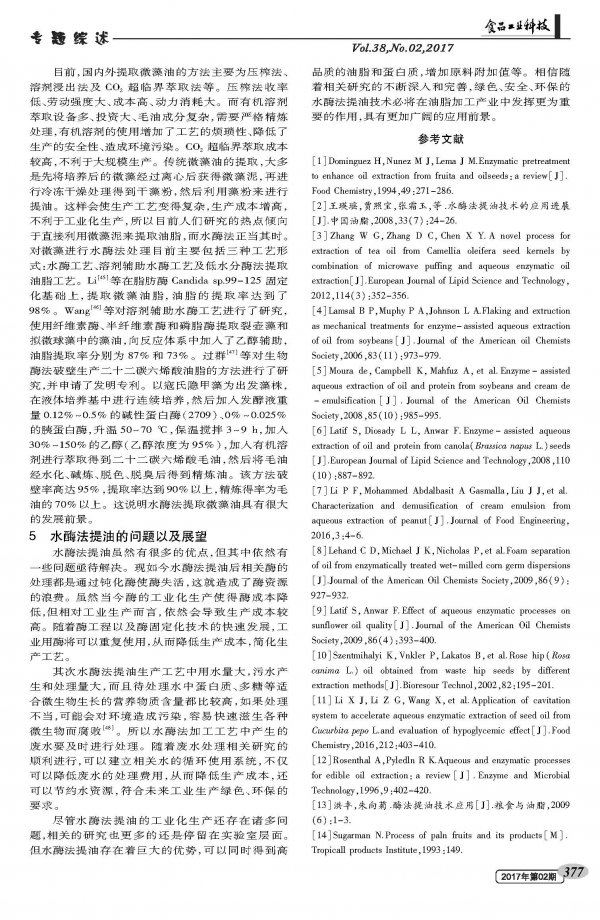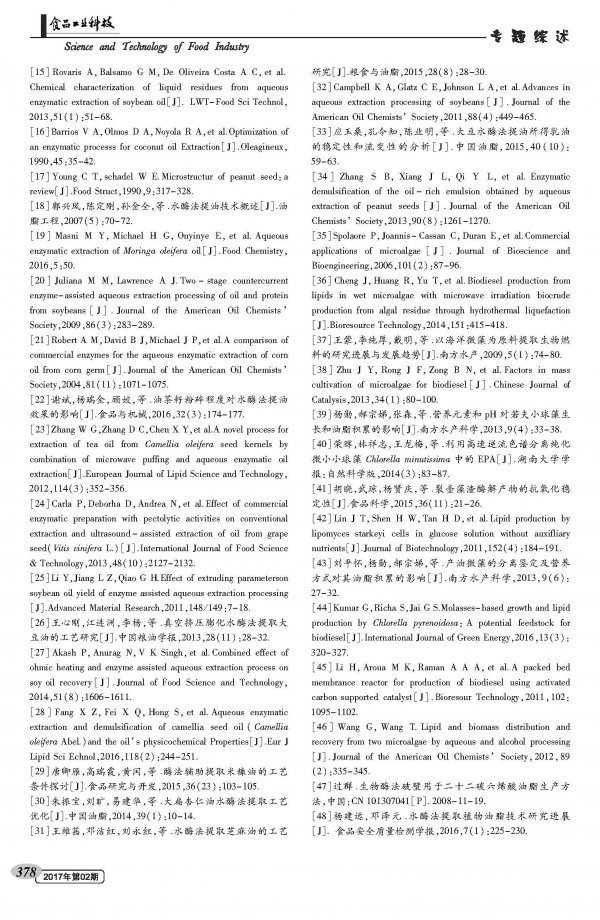At present, the extraction and processing methods of edible vegetable oils in China mainly include physical methods and chemical methods, namely, pressing method and organic solvent leaching method. The oil extraction rate of these two processing methods is relatively high, but the wet heat pretreatment is required before processing, which leads to protein denaturation and reduces the utilization value, which is not conducive to the comprehensive utilization of related substances, and also destroys the chemical composition of the oil, resulting in The oil is darker and darker, which in turn leads to poor quality oil. The water enzymatic method is an emerging method for extracting oil and fat. It mainly uses mechanically crushed oil, uses water as a decomposition phase, and uses related enzymes (such as protease, amylase, pectinase, vitamin enzyme, etc.) to hydrolyze the oil cell wall in the aqueous phase. Thereby the grease is released from the oil. The non-oil component is separated from the oil by the difference in affinity between the oil and water and the specific gravity of the oil and water. In this paper, the process principle, influencing factors and application prospects of water enzymatic extraction are discussed one by one, and the research direction of water enzymatic extraction of microalgae oil, which has broad application prospects, is discussed. 